If you are taking a cruise you may be wondering how common it is to get sick onboard and what happens if you do.
Colds, cases of flu, and other viruses spread on cruises in the same way that they do on land.
With so many people traveling together, it is inevitable that some will get sick.
What Happens if You Get Sick on a Cruise?
Any guests who are unwell during a cruise will be treated by the onboard medical teams.
Guests may be quarantined to their cabins if the illness is infectious and could be disembarked from the ship if the illness needs further medical care.
The vast majority of illnesses happening on cruises are simple colds, coughs, and stomach bugs.
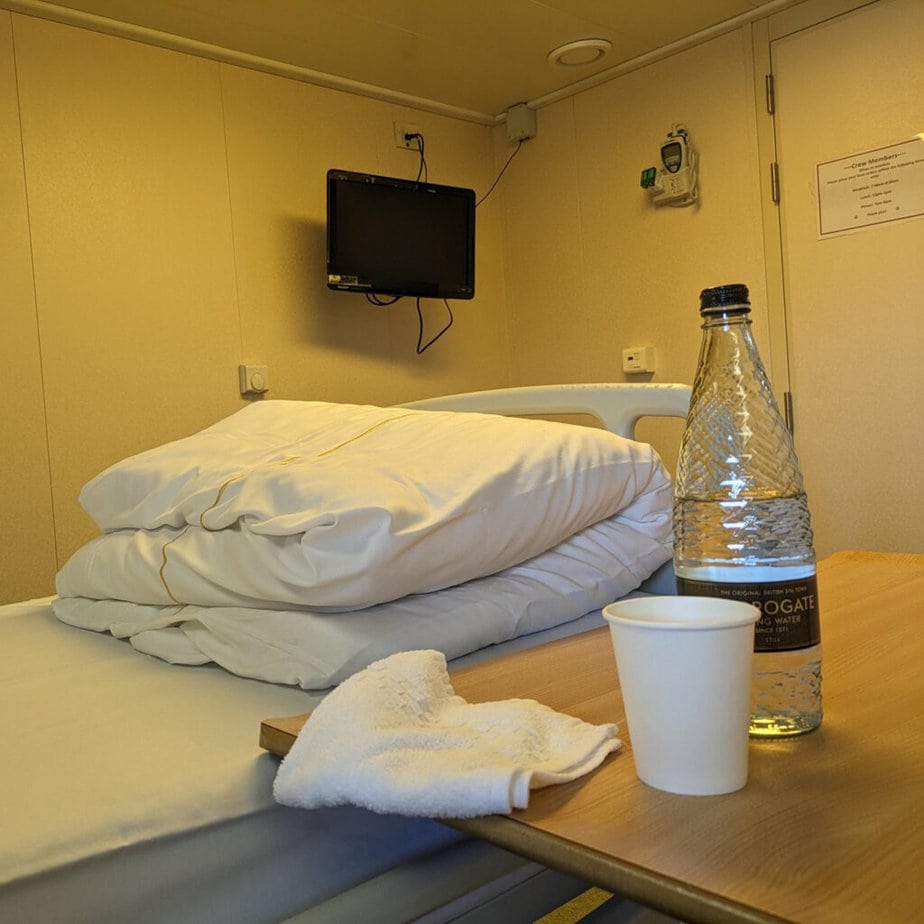
How Common is it to Get Sick on a Cruise?
25% of people who have taken a cruise report that they have suffered some sort of illness while onboard.
Common illnesses include seasickness, colds, flu – and hangovers.
The 25% figure came from our Facebook group members, many of whom have been on multiple cruises.
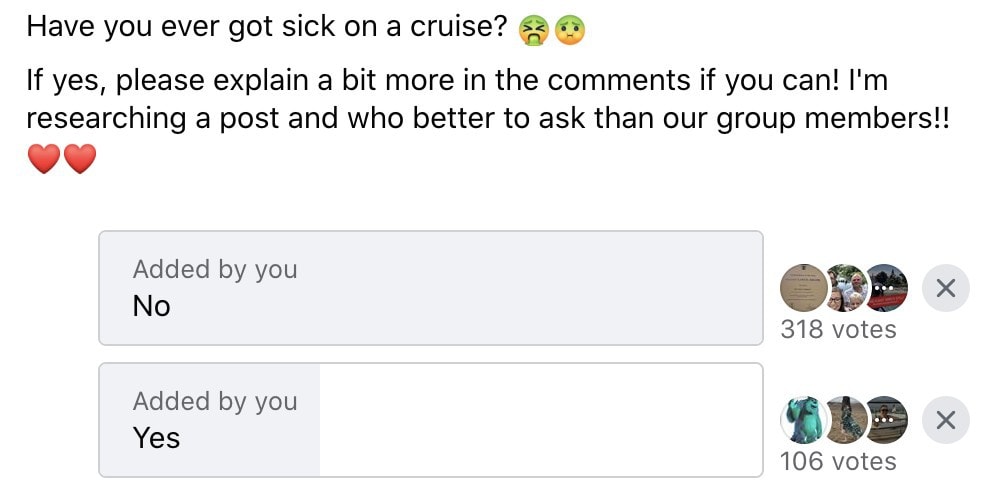
It was a similar picture when I asked our Twitter followers if they had ever been unwell on a cruise.
Please do bear in mind that these figures include ANY illnesses and if you were to ask a similar sample size if they had been unwell in the last month, some would say yes!
(A lot of the respondents admitted to including hangovers as a reason to reply “Yes.”)
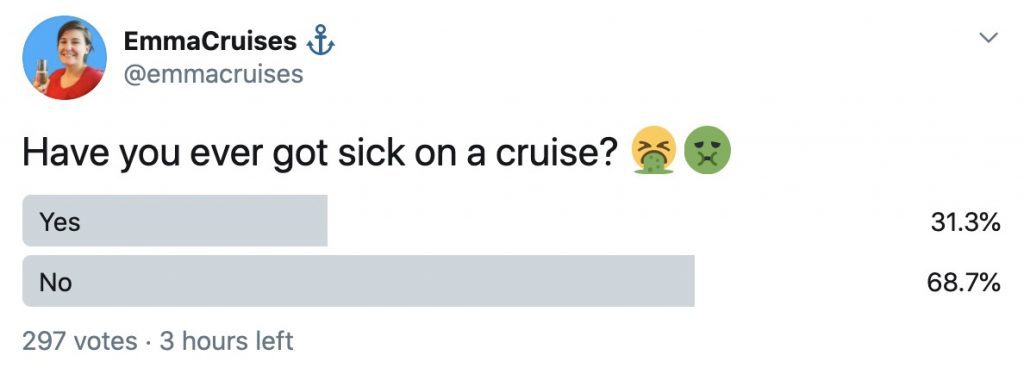
What Happens if You Get Sick on a Cruise?
Cruise lines have procedures in place to deal with almost any kind of medical problem or emergency. If in doubt, speak to the crew, it is their job to help.
1 – Guests Should Contact The Onboard Medical Centre
In the first instance of any illness, the onboard medical teams should be contacted.
If you have a simple cold this isn’t necessary but any symptoms that could be Coronavirus or Norovirus (the tummy bug) should be reported.
Guests can contact the onboard medical services by phone and this is usually the best way as it reduces the chance of any further spread of contagious infections.
The medical centre is usually located low down on the ship and guests can go to the centre if they need urgent medical care.
It is usually best to phone the medical centre first as they can either invite you down or diagnose your illness over the phone.
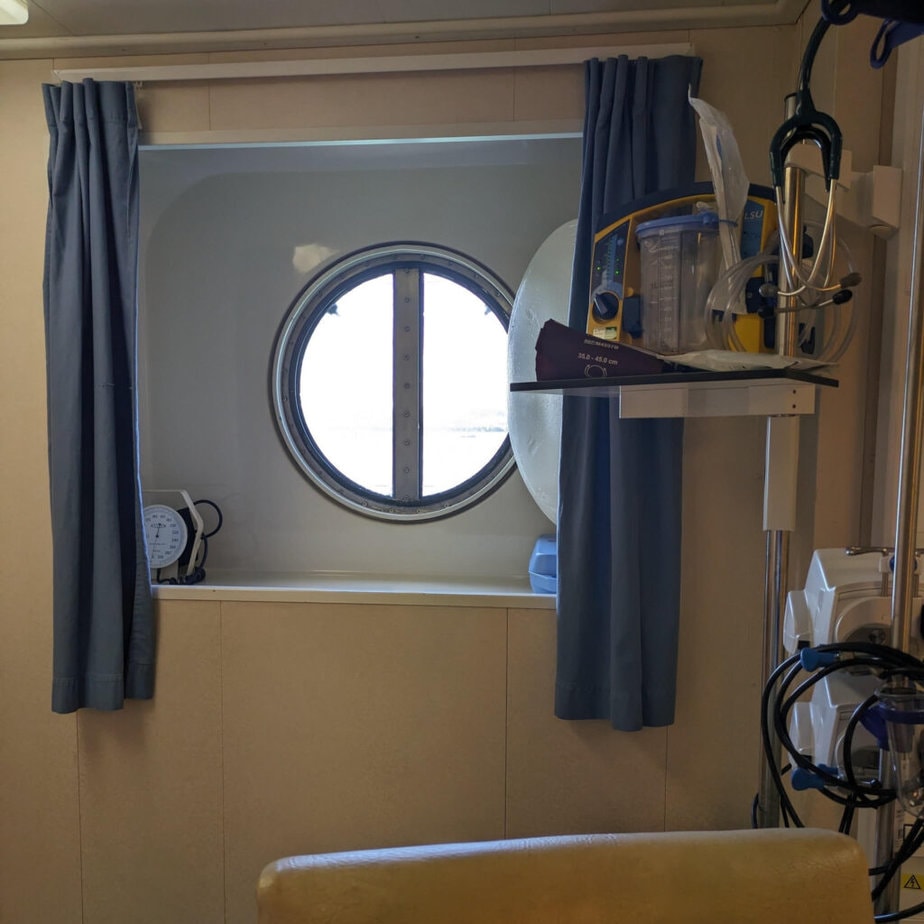
Which Crew Members Work in the Medical Centre of a Cruise Ship?
In the medical centre, you’ll find a variety of crew members.
Most cruise ships have 2 doctors with some of the largest ships having up to 4. There will also be several nurses and other medical crew on board.
There is medical equipment to deal with almost any emergency.

2 – Guests Will be Evaluated by Medical Staff
After contacting the medical staff an evaluation will be carried out to determine the medical issue.
The crew will either:
- Provide a diagnosis over the phone and suggest treatments (if the illness is very minor)
- Ask the passenger to come to the medical centre for further evaluation (if the issue doesn’t appear to be contagious)
- The medical team will go to the patient’s cabin to diagnose the problem (if more serious)
If a guest is experiencing pain or an unknown medical issue medical teams may come to the cabin of the passenger in order to diagnose an issue.
The crew are well equipped to deal with emergency situations. As well as doctors and nurses onboard, many onboard crew members will be first aid trained.
3 – The Guest Will be Given Treatment if Applicable
If the diagnosis is easy and there is a treatment/medication available this will be given to the guests
It’s worth remembering that you do have to pay for medical expenses on a cruise and these can get incredibly expensive.
You must buy travel insurance before your cruise to cover any medical expenses.
If you’re considering cruising without travel insurance make sure you read this story of a US man who died after having a stroke on a Carnival ship without insurance:
Cruise Ship Deaths – Annual Statistics, Causes and Real Examples.
It’s usually easier to pay medical expenses and claim these back although this isn’t possible for everybody. Cruise lines have processes in place to deal with this.
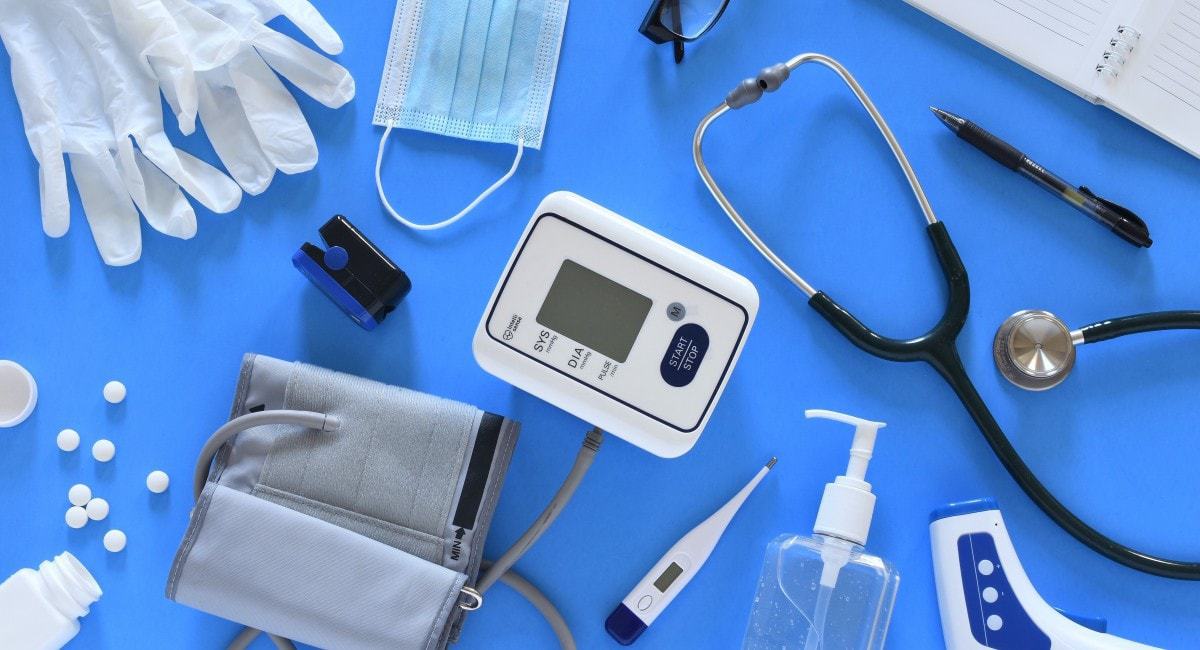
4 – Guests Will be Quarantined in Their Cabins (If Required)
If a guest has an illness that could be infectious they will be told to quarantine in their cabins.
The quarantine is mandatory if instructed by the cruise staff and any quests caught breaking the quarantine will be removed from the cruise ship.
The crew will look after quarantined guests by:
- Providing Free Room Service
(A reduced menu designed to help recovering guests with illnesses. Mostly of bland, illness-appropriate food – like toast, soup, and porridge). - Providing Free Laundry
If required the cruise line will do laundry free of charge for guests quarantined in their cabins. - Regular Bedding Changes and Cabin Sanitisation
- Regular Phone Calls From The Onboard Medical Team
The guests will be phoned regularly to ensure that they are recovering well.
To learn more about being quarantined in a cabin check out this post by a friend of mine whose daughter caught Norovirus on a cruise.
It’s worth noting that not all guests cruising in the cabin have to quarantine on the majority of ships if the illness is Norovirus.
If the illness is Coronavirus all guests would have to quarantine.
5 – The Guest May Need Medical Centre Treatment
If a guest requires more serious medical treatment – such as being on an I.V. drip they will stay in the onboard medical centre.
There is room in the onboard medical centre for a number of guests to spend the night should they need specialist equipment or need to be monitored.
Staying in the onboard medical centre can get incredibly expensive but if a guest is seriously unwell it is the best place for them and really the only option.
Only the most serious of cases require a stay in the onboard medical centre.
The medical centre does have set opening times, although you may find a member of staff there for emergency purposes, even out of hours. They can also be reached out of hours by phone.
6 – The Guest May Transfer To On Land Treatment Centres
If a passenger’s medical problem requires more intensive care than can be provided on the ship it may be decided that the passenger should disembark.
It may be possible for the guest to wait until the next port if their needs aren’t life-threatening. In this case, the passenger may be disembarked at the next port or at the next port which has appropriate medical facilities.
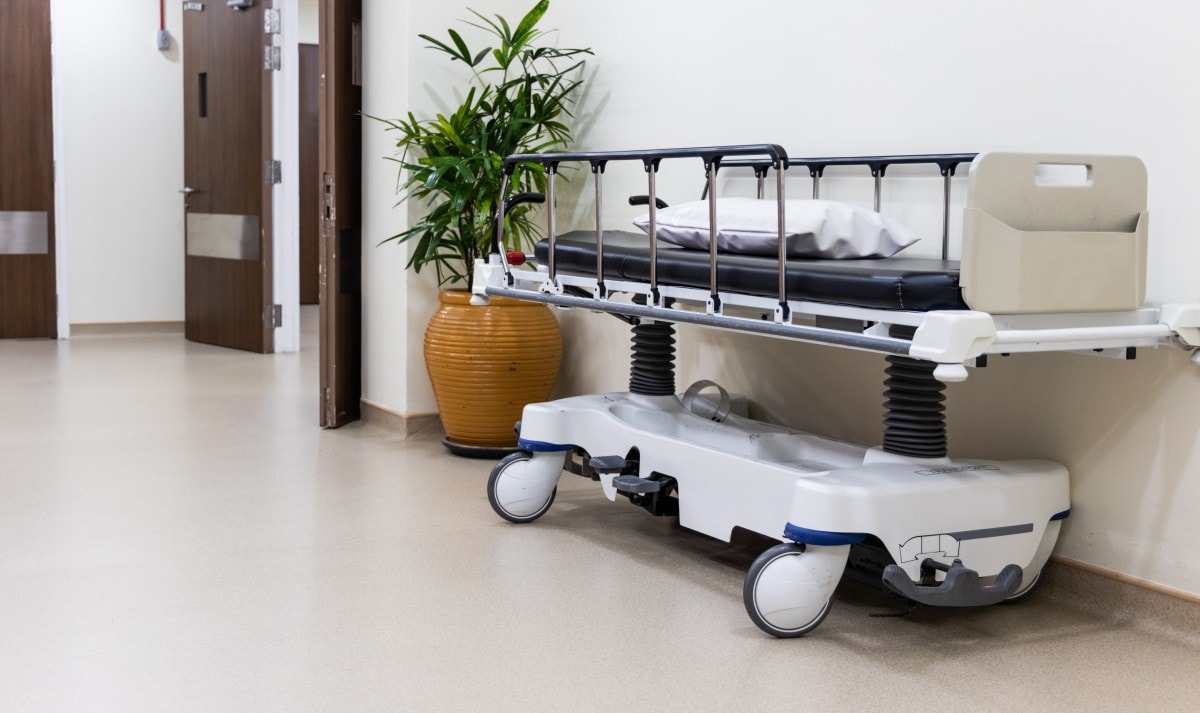
Airlifting or Emergency Docking
In the case that a guest is seriously unwell and the ship isn’t scheduled to dock soon an emergency airlift may have to be completed.
This only happens in the most serious of situations and can realistically cost hundreds of thousands of dollars. This is another reason why you NEED travel insurance when you cruise.
Emergency Docking
This may be more common than you think!
I took a British Isles cruise a couple of years ago where a passenger became unwell, we were cruising around the Scottish highlands at the time and there were no accessible cruise ports.
Instead of air lifting off the passenger what the cruise ship crew decided to do was to sail as close to land as they safely could and then pass the passenger to land using a tender boat. I remember watching the small boat speed off from our ship.
This can be an easier, and considerably cheaper option for a cruise line.
When I sailed on P&O’s Arvia, we had to make a late-night, unscheduled port stop in Spain to disembark an unwell passenger. Find out all about that eventful cruise here:
Logistics of a Medical Disembarkation
As medical conditions often happen very suddenly, with the patient needing to disembark, guests may not have made preparations to leave the ship.
In this case, the ship’s staff will pack your entire room, into your cases, so that you don’t have to worry about that side of things.
Once the patient and their party are on land, the cruise company’s shoreside staff take very good care of you.
They will phone the other person in the party, to assess how well they can deal with the situation and either fly someone out to help or just keep regular contact to make sure they are coping.
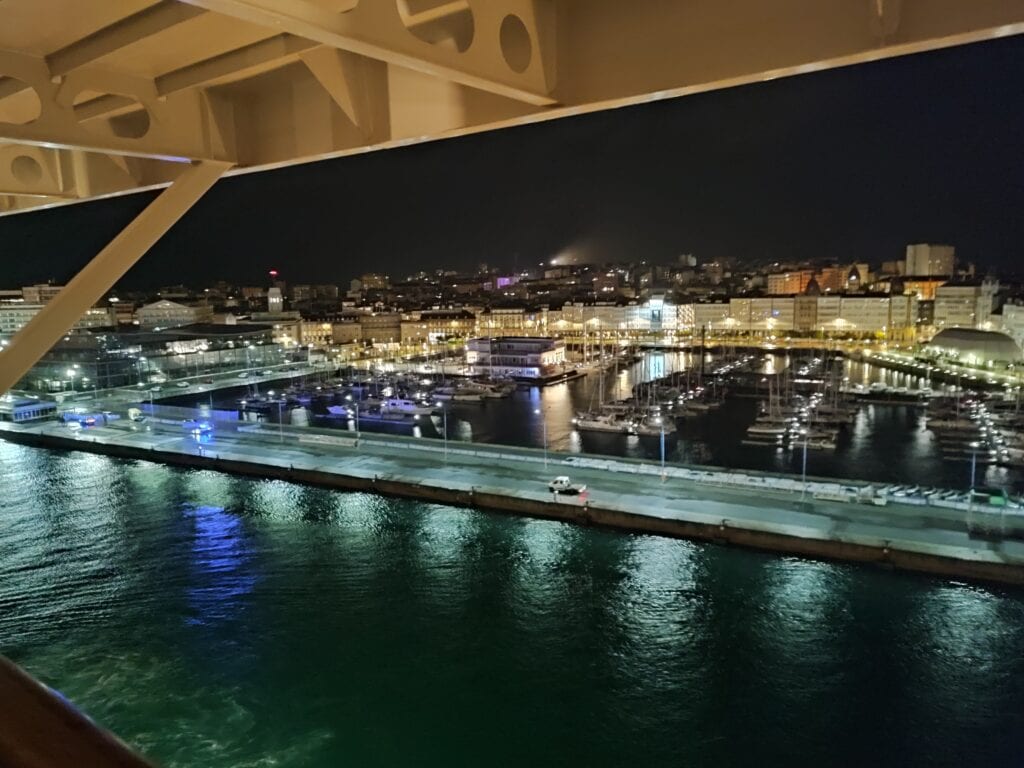
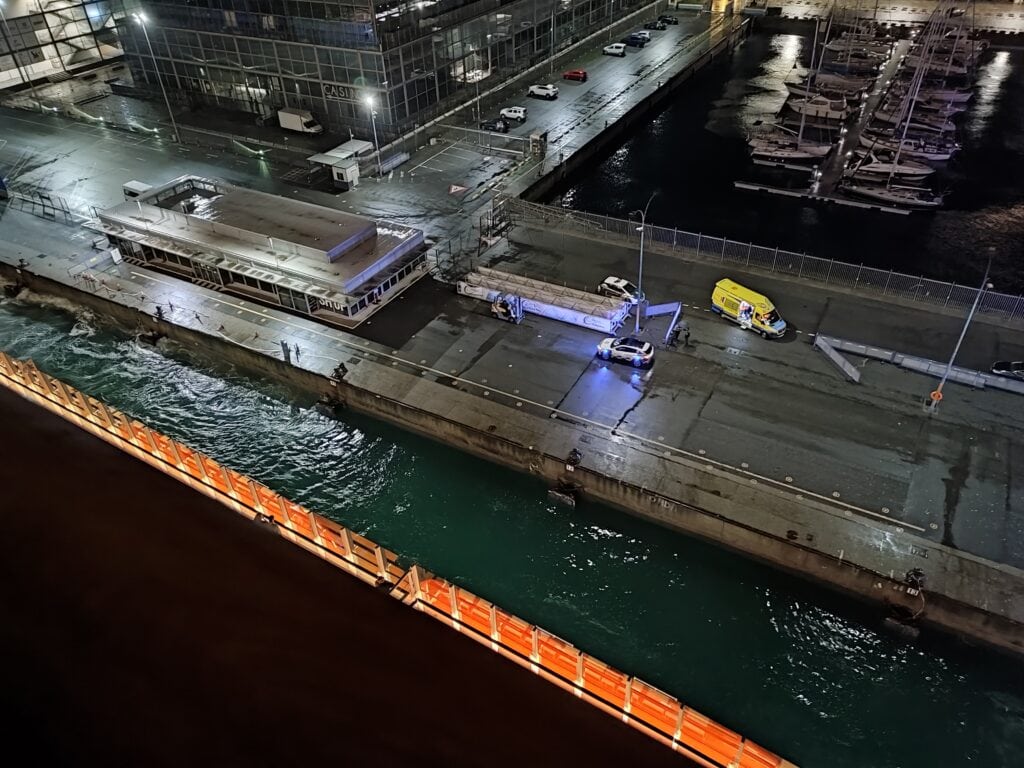
What Are The Common Causes of Onboard Illness?
Seasickness
Some people do get seasick when taking a cruise. This is more common if the cruise encounters bad weather but it can happen at any time to almost anybody.
Guests who are already prone to motion sickness are more likely to feel seasick on a cruise. The majority of passengers do not get seasick.
If you do get seasick, there are many ways to prevent and treat it.
I’ve been on over 60 cruises to date and have been seasick on a handful of occasions.
I’ve devised a number of ways to prevent and treat seasickness.
These include what I eat, where I sleep, what I wear, and where I cruise.
I think the fact that I carry on cruising despite being one of the most travel-sick people I know says a lot.
I’m much more likely to get travel sick in a car or coach than a cruise ship.
Find out how i avoid seasickness in this post:
13 Actionable Tips to Prevent and Treat Seasickness on a Cruise
Infection Viruses (Norovirus and Coronavirus)
Cruise ships do on occasion have outbreaks of Norovirus or Coronavirus.
What Happens if You Get Coronavirus on a Cruise?
Guests who test positive for Coronavirus on a cruise will be quarantined in their cabins until it is appropriate for them to disembark the ship.
At this time guests will be quarantined in appropriate medical facilities or hotels.
If a guest tests positive for Coronavirus while embarking on a cruise they will be denied boarding but won’t be held for quarantining. (Most cruise lines have now given up testing for Coronavirus, so it is unlikely that it would be picked at embarkation check-in unless they are obviously unwell.)
What Happens if You Get Norovirus on a Cruise?
Guests who contract Norovirus on a cruise are asked to quarantine in their cabins.
The crew provides the guests with clean towels/sheets and delivers food free of charge to the passengers.
The guest must continue to quarantine in their cabin for 24 hours after their symptoms have gone.
It is worth remembering though that Norovirus is definitely not a cruise ship-specific disease!
The graph below shows where people are most likely to get Norovirus.
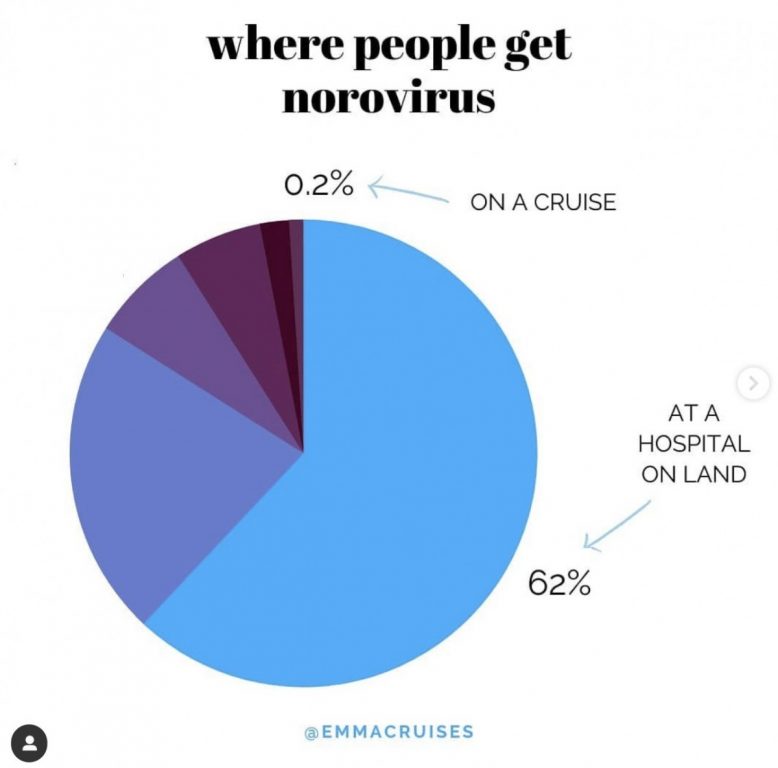
Cruise lines are subject to much stricter regulations when it comes to recording illnesses than on-land hotels/restaurants.
This is why outbreaks of Norovirus on cruise ships are widely reported compared to other outbreaks.
The standard of cleanliness of a cruise is incredibly high.
Your chance of getting Norovirus on a cruise is roughly 1 in 5500, on land it is 1 in 15!
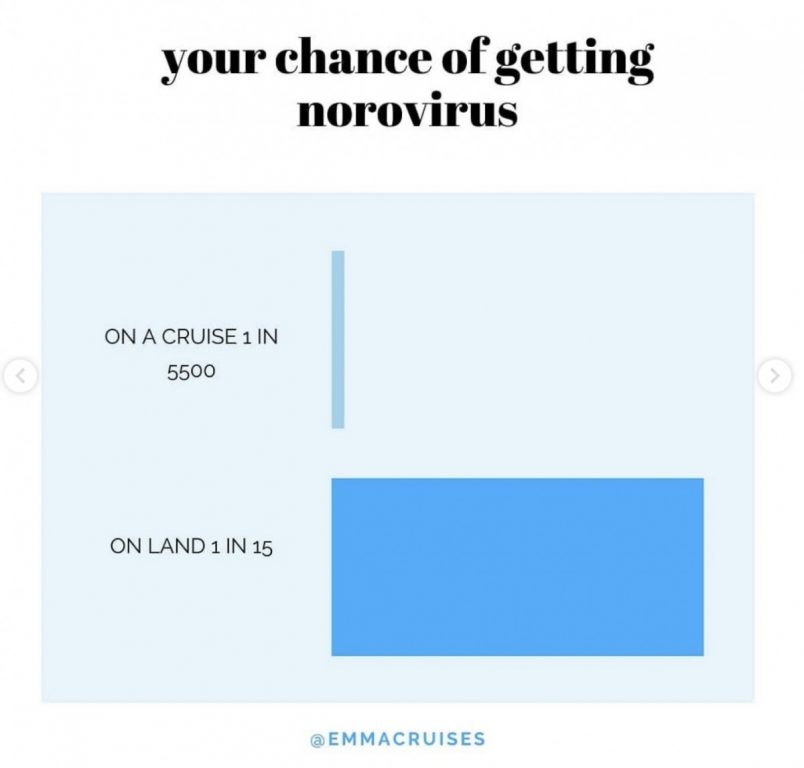
Are Guests Entitled to Refunds if They Get Sick on a Cruise?
The cruise lines do not provide any form of compensation or refunds for guests confined to their cabins due to illness.
There are many travel insurance policies that do provide a cash lump sum in the event of cabin confinement – but this is not the norm.
When purchasing travel insurance be sure to check if the policy includes ‘cabin confinement’ if this is something you’d like.

Cruise Line Partial Refunds/Compensation
The cruise line may provide compensation if there is a large outbreak of Coronavirus or Norovirus onboard if this significantly affects the cruise.
For example, if the cruise ended earlier than planned the guests would most likely receive compensation and/or discounts off a future cruise.
Where Can You Buy Medication on a Cruise?
Cruise ships do not have full pharmacies onboard but will usually have a section of an onboard shop dedicated to medicines.
This is normally part of the gift shop/general store onboard.
Here you can find treatments for common problems such as headaches or colds. For more serious medical conditions all cruise ships have an onboard medical center that carries a greater variety of medicines.
Find out how to stay healthy on a cruise, and get tips on what first aid supplies and medications to pack, read this article next:
Staying Healthy When You Cruise, Avoiding Seasickness – Medications and First Aid Items to Pack
Can You Get Prescriptions Filled on a Cruise?
Although medicine is available onboard it’s not usually possible to get prescription medicines if you leave yours at home.
It’s always advisable to bring more medicine than you think you’ll need. If you did run out, your medicine may have to be sourced from a local port, which is not ideal.
To learn more about the best way to buy medication on a cruise, including where you can get free seasickness pills, check out this post:
Cruise Ships Don’t Have Full Pharmacies on Board – Here’s What They Have
Do Cruise Ships Have Dentists Onboard?
Find out more about that in the article below:
Cruise Ship Dentists – Do They Have Them and Other FAQs
Before You Go
Find out how much medical care on a cruise ship actually costs, with real-life examples here:
How Much Does Medical Care Cost on a Cruise? Real Examples (X-Rays, Consultations & More)
Find out about real-life nightmare situations when people didn’t take out the correct travel insurance here:
5 Cruise Nightmares Caused by Not Having The Correct Travel Insurance (Real-Life Examples)

Free Insiders Cruise Line Guide
Ever wondered how the mainstream cruise lines compare? Cruise lines won’t tell you this, but I will.
This FREE guide shows you everything you need to know to find your perfect cruise line.
